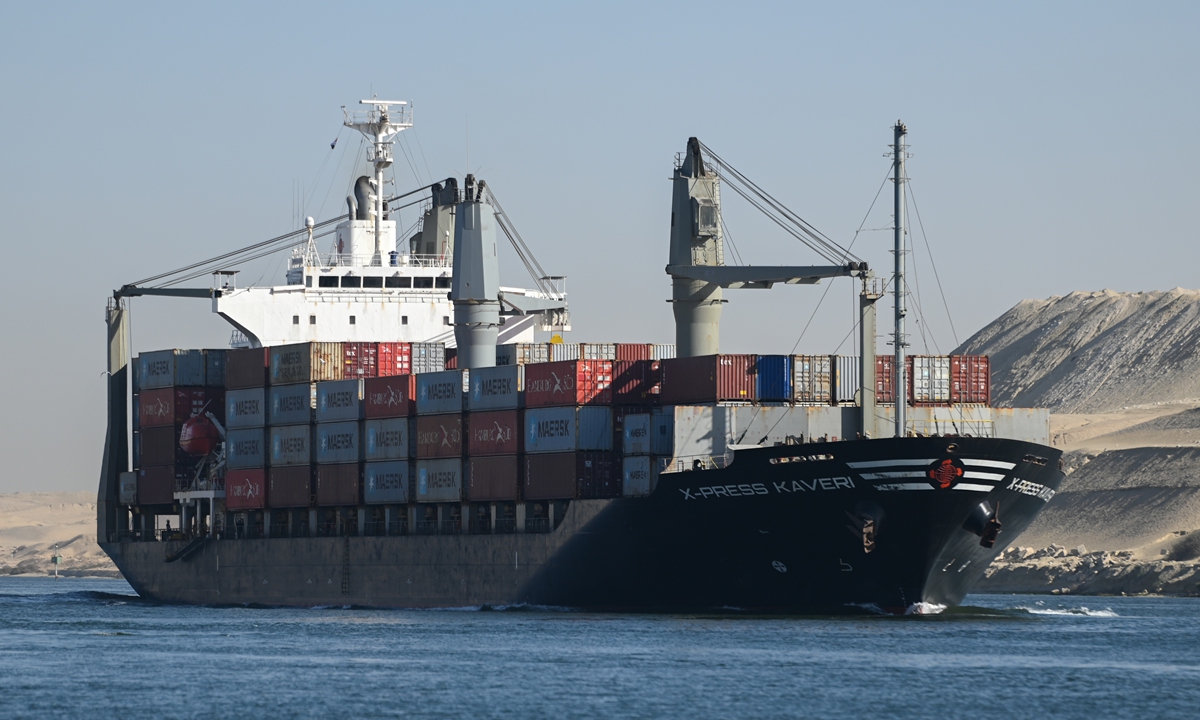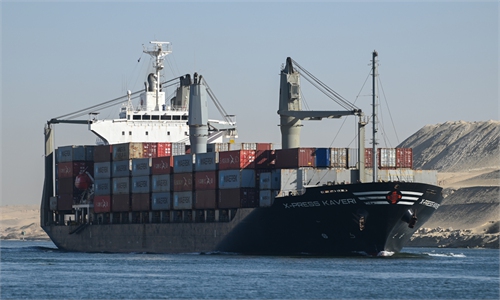Red Sea crisis evokes memories of container shortages, but Chinese suppliers feel limited impact

A ship transits the Suez Canal towards the Red Sea on January 10, 2024 in Ismailia, Egypt. Photo:VCG
The continued escalation of the Red Sea crisis is still affecting Asia-Europe shipping, with some even fearing a return to container shortages. But Chinese logistics companies and experts said that the country's ocean-going supply chain is resilient enough to cope with the situation.
US electric car maker Tesla has become the latest victim of the situation in the Red Sea, with the company announcing on Friday that it is suspending most of its production near Berlin as the rerouting of shipping lanes has caused a lack of components, according to a Reuters report.
Fears of shortages are also rising. About 780,000 standard containers fewer than anticipated will arrive in Asia just prior to the Chinese lunar New Year, which falls in mid-February this year, according to an analysis posted on industry portal Baltic Exchange on January 11.
A shortage of empty containers seriously disrupted global trade flows during the pandemic years, with countries such as China, the world's leading container maker, ramping up output to meet demand.
Wang Lingjun, vice minister of the General Administration of Customs of China, highlighted the impact of the Red Sea crisis at a press briefing on Friday.
However, industry sources in China said that under current conditions, the impact is still limited, and China's complete supply chain can cope with the situation.
Wu Minghua, a veteran shipping analyst, told the Global Times on Sunday that knock-on effects such as container shortages generally happen following the delays and diversions away from the Red Sea amid the crisis, but there's been little impact so far on companies in China over containers.
"The Red Sea crisis has dealt a serious blow to entire seaborne trade supply chains, including transshipment, amid a small peak holiday season for cargo delivered from East Asia to the European and American markets, adding pressure on deliveries," Wu said.
"However, things have not been so bad as to affect container equilibrium across the continent. Some cross-ocean trade, such as the Pacific route, has not been affected."
A manager at a Shenzhen-based shipping company told the Global Times on Sunday on condition of anonymity that concerns over the shortage of containers in China do exist, but this problem has greatly improved since the pandemic.
"The number of containers exported by China is sufficient because most companies have maintained adequate containers and can resort to alternatives or transfer them from other ports," the manager said.
Others, including those operating China-Europe cargo trains, said that there's been no impact.
"We see an increase in bookings especially for routes departing for Germany and Spain. Each train can carry up to 60 containers and serve as a substitute for sea transportation to some extent," a representative of a logistics firm told the Global Times.



